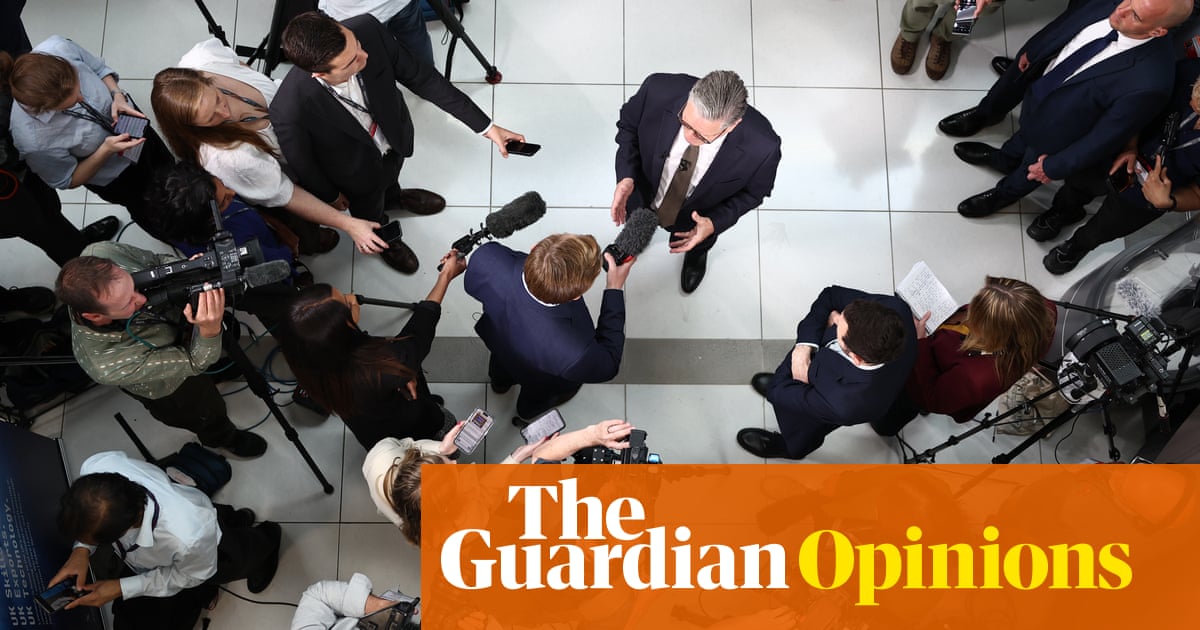What else would you expect from a byelection? Governments lose and this government is unpopular. To lose by a hair’s breadth – only six votes – is scant comfort in the forever Labour seat of Runcorn and Helsby, while Reform UK’s win of the mayoralty in Tory heartland Greater Lincolnshire is a symbolic blow to Kemi Badenoch. Both parties of the old duopoly have fallen under the wheels of political distrust and discontent.
Change! That’s what Labour promised during the general election, and in Runcorn I heard that tossed back at Labour canvassers: well, where is it, then? Keir Starmer today pledged to go “further and faster”. Those changes that have been ushered in have been deeply unpopular. Labour’s mayor of Doncaster clung on, against predictions, by damning the winter fuel allowance, disability cuts and employers’ national insurance rise.
Labour promises to “listen” after the day’s bad results – but to who, saying what? Nigel Farage is a threat: look at the damage of his 20-year Brexit campaign, and now he has bigger battalions. If any ill-adviser suggests to Labour that “listening” means turning Farage-wards, just examine the untempting pickings on Reform’s policy plate. Its manifesto shows how weirdly unpopulist these populists are: unexplored in a rebellious midterm spasm, most of its proposals will be a gift to Labour. The idea of tax relief for private health insurance was a disaster when the Conservatives tried it in their 2001 manifesto: dallying with core NHS principles touches a killer live rail in British politics. Likewise, offering 20% tax relief on private school fees is a blunder: Labour’s VAT on private school fees has been highly popular. Despite years of BBC appearances wildly unwarranted by his polling, Farage has proposed abolishing the licence fee, something which is unlikely to be a winner. Expect his new councillors to be grilled locally about his dismissal of Send and children’s mental health as “massively” overdiagnosed.
His big tax cuts for business may not resonate in hard times – though hisstealth levy on banks would. His renationalising of our lost utilities is a fruitful theme, but Labour may have done more of that and should boast more bravely about taking back steel (and its similar plans for rail) and creating Great British Energy.
He (and the Tories) imagine that opposing net zero is their new Brexit, the great new anti-Labour wedge. On the Today programme last week, Farage was initially evasive when asked whether humans cause rising temperatures. Bring it on, Labour replies. The public is resolutely on the other side: YouGov finds that 61% support the net zero target, with only 24% against. That made Tony Blair’s bizarre eve-of-poll intervention even more quixotic when he called phasing out fossil fuels a strategy “doomed to fail”. The kickback from Labour was refreshingly instant: that sharp rebuke should signal an end to traffic with the Tony Blair Institute.
Starmer had only just delivered one his most forceful speeches, doubling down on climate policy. “This government is acting now, with a muscular industrial policy, to seize the opportunities [in low-carbon technology] to boost investment, build new industries, drive UK competitiveness, and unlock export opportunities. That is the change we need. We won’t wait – we will accelerate.” That’s the way to challenge Reform and Conservatives, further and faster.
Now use that full-frontal attack on their immigration policies too: yes, smash the gangs and prevent small boats and strangers arriving without permits, as Yvette Cooper strives to, like all governments. But be honest about the need for particular migrants. Treat people as adults. When asked who should be admitted, public opinion is positive about every occupation, not just doctors and engineers: they are in favour of migrants filling necessary jobs in areas such as hospitality, farming and care work. They back visas for construction workers by 38% to 16% against. On foreign students, the public are 61% in favour, only 27% opposed, according to British Future. Running away from voters instead of discussing immigration is a political mistake, when openness, clarity and explanation calm unreasonable panics. Do the same on a Brexit reset.
This was Farage’s night and the Tories’ calamity. These elections were mainly in Toryland, so they took the most ravaging. The political drama is his tug-of-war with the Tories: will they, won’t they build an alliance, under whose leadership? Tactical voting, as in the last election, will drive together Labour, Green and Liberal Democrat supporters to vote against them, our monstrous system unfit for five-party politics.
But this may be peak Farage. He will be weighed down increasingly by his Trump contamination, with the US president phenomenally disliked in Britain. Wait for more Trumptastrophes to inflict increasing damage on him. At a general election, how appealing is a British Trump and yet more mayhem? Brexit will age worse with every passing year.
Farage, master communicator of ersatz chumminess, is a surprisingly poor tactician. His is a one-tune party, and even as salient an issue as migration doesn’t alone win general elections. Beyond his talent for dressing up a visceral nastiness with a smile, he blunders in ways that will come under more scrutiny now. His councillors will face bruising exposure.
Noteworthy byelection and local election results pepper the past. When Shirley Williams won Crosby in 1981, the national polls soared over 50% for her nascent SDP. I remember internal discussions about who would be in the SDP cabinet. After so many flashes fizzling out, these results may be no augury of Farage ascendant.
But if he is, then Labour and Tories should consider this: John Curtice today says Reform has reached the tipping point where first-past the-post can aid it. As Labour last year won a shocking 63% of seats on 34% of votes, so could Farage win a majority on puny votes. Electoral reform is now in every party’s interest, and above all, in voters’.
-
Polly Toynbee is a Guardian columnist
Do you have an opinion on the issues raised in this article? If you would like to submit a response of up to 300 words by email to be considered for publication in our letters section, please click here.

 15 hours ago
18
15 hours ago
18













































